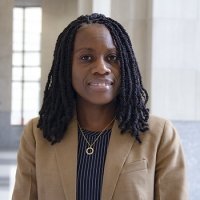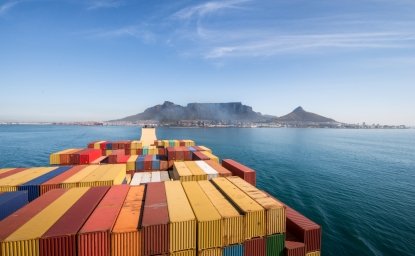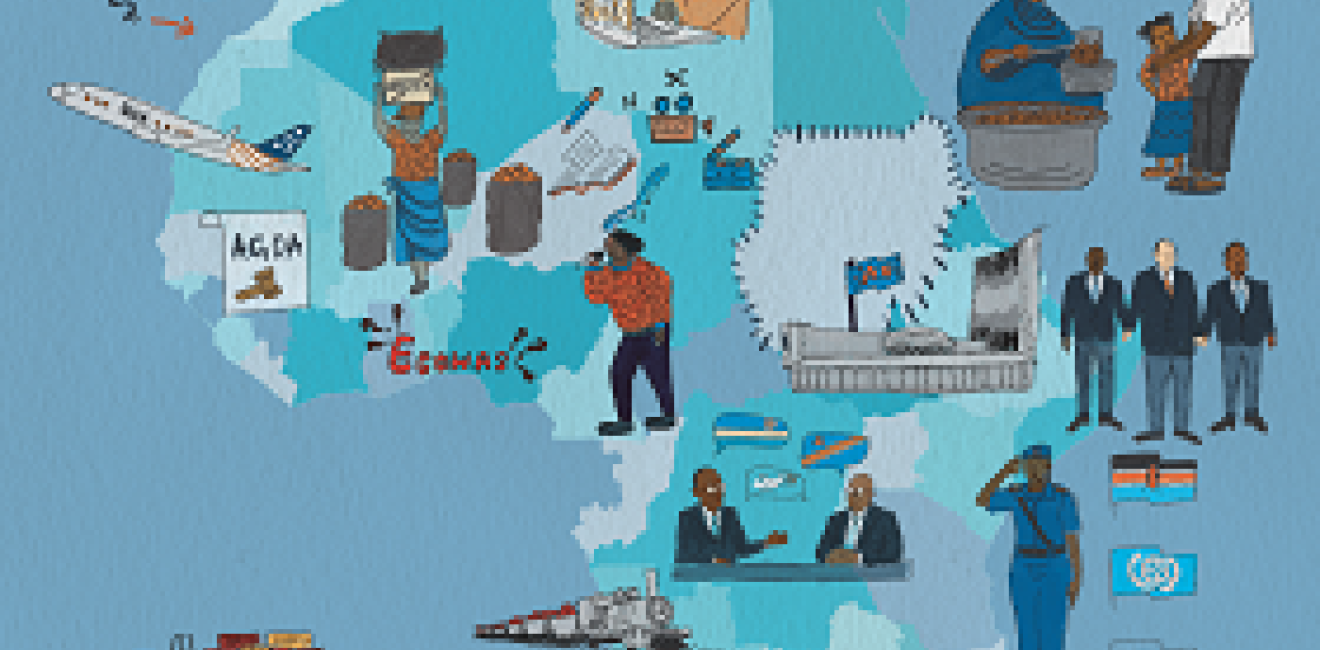This article was released as a sneak peak into Africa: Year in Review 2024. Check in periodically for more releases in the lead up to the launch event on February 6th.
T
his edition marks the 10ᵗʰ anniversary of Africa: Year in Review. Over the years, the publication has become an opportunity to reflect on the past year of events across Africa and evaluate the implications for US relations with African countries going forward. This anniversary provides us with perspective and allows us to review recent events in relation to longer-term trends.
Ten years ago, we noted a shift in the balance between Overseas Direct Investment and Foreign Direct Assistance. That subtle shift has taken a dramatic turn in recent years, with the most visible manifestation being US infrastructure investment in the Lobito Corridor. This year’s essays highlight the Lobito Corridor in addition to other infrastructure initiatives by the US Trade and Development Agency and Prosper Africa that provide new economic partnership opportunities.
With these investments, economic opportunities are expanding. For example, mining investments, particularly for green economy-related minerals, like the Lobito Corridor, are gaining increased attention and competition. These investments are creating opportunities for African countries to capitalize on. Domestically, African countries like Tanzania are making efforts to reform their banking sector to improve access to finance. Additionally, authors in this year’s edition argue that intra-African initiatives like the African Continental Free Trade Area are a way to build on increased investment and financial access if implemented rapidly.
However, citizens need to feel the consequences of this investment and financial access. As one essay notes, unemployment followed by access to food, utilities like electricity, and poverty reduction are citizens’ policy priorities across the continent. Management of the economy is an urgent priority with corruption reducing citizens’ trust in their governments. The Gen-Z protests in Kenya exemplify how economic frustrations can lead to widespread protest movements calling for drastic changes. Similarly, in South Africa, years of corruption and mismanagement have led to the first coalition government since majority vote in 1994.
Elections like in South Africa show distinct changes in African politics. However, as many things change, much stays the same. The first edition of Africa: Year in Review discussed faltering democratic practices on the continent in a year when more than 16 African countries held national elections. This year reflected a similar dynamic. Called the “super-year of elections,” at the start of the year, 19 African countries were scheduled to hold significant elections. These elections, however, were surrounded by a democratic decline narrative. This year's essays bring nuance to this narrative by pointing to election processes in Botswana, Namibia, and Ghana, in addition to South Africa, that resulted in peaceful transfers of power and new political coalitions, as well as the support to democratic advancement provided by agencies like the Millenium Challenge Corporation. However, these elections stand in contrast to the evolving electoral disputes in Mozambique, ongoing military leadership in Sahel countries, and long-term leaders holding power across the continent.
In 2015, Burkina Faso was spotlighted with essays on emerging democratic practices. This year, it is discussed in relation to the Alliance des États du Sahel (AES), which includes the military regimes of Burkina Faso, Mali, and Niger. In 2024, AES states announced their withdrawal from the West African regional economic community – the Economic Community of West African States (ECOWAS). The announcement raised serious questions about the future of ECOWAS and regionalism, more generally. The year 2025 will be significant for Africa’s place in global governance, with the African Union holding elections for the Commission Chairperson, South Africa hosting the G20, and Kenyan police still in Haiti. These opportunities are clouded by whether Africa’s continental and regional institutions are positioned to seize the moment.
Like past years, this year was marked by conflict dynamics across the Horn of Africa and the African Great Lakes regions. Sudan’s civil war persisted throughout the year to emerge as the world’s largest humanitarian crisis. The US has led in humanitarian response, but one author questions whether more needs to be done. Similarly, in the complex and long-standing conflict in eastern Democratic Republic of Congo (DRC), another author shares how US and Angolan mediation deescalated tensions between the DRC and Rwanda, but conflict persists. South Sudan’s already-delayed elections were once again postponed, pushing the possibility of an election to 2026. And Ethiopia’s naval port agreement with Somaliland on January 2, 2024, was a New Year's surprise for many that reshaped the geopolitical alliances of the region. The subsequent Turkish-led mediation between Somalia and Ethiopia, announced in December 2024, equally shifted the region's geopolitics.
While some trends have continued, others have changed, and new opportunities have arisen. The past decade has brought distinctive changes to the continent and US-Africa relations. On this 10ᵗʰ anniversary, we are excited to share perspectives from individuals who wrote for the first edition ten years ago and glad to welcome new voices into these discussions. Through Africa: Year in Review and our other programming, the Wilson Center Africa Program promotes dynamic conversations on US relations with African countries that directly include African perspectives and analysis.
We are honored to be the stewards of Africa: Year in Review and are excited to share the important and thoughtful essays in this 10ᵗʰ edition.
Sincerely,
Oge Onubogu
Director, Wilson Center Africa Program
P.S. We are excited to have also refreshed the look of Africa: Year in Review. The cover art and layout were done by Kenyan artists Lulu Kitololo and her team led by Stanley Kabicho. We hope to continue to use Africa: Year in Review as a platform to engage and highlight, not only African and US perspectives on political, social, and economic relations, but to spotlight African artists as well.
Read the rest of the AYIR 2024 early release:
Author


Africa Program
The Africa Program works to address the most critical issues facing Africa and US-Africa relations, build mutually beneficial US-Africa relations, and enhance knowledge and understanding about Africa in the United States. The Program achieves its mission through in-depth research and analyses, public discussion, working groups, and briefings that bring together policymakers, practitioners, and subject matter experts to analyze and offer practical options for tackling key challenges in Africa and in US-Africa relations. Read more

Explore More
Browse Insights & Analysis
Driving Impact: How Civil Society is Energizing US-Africa Trade



